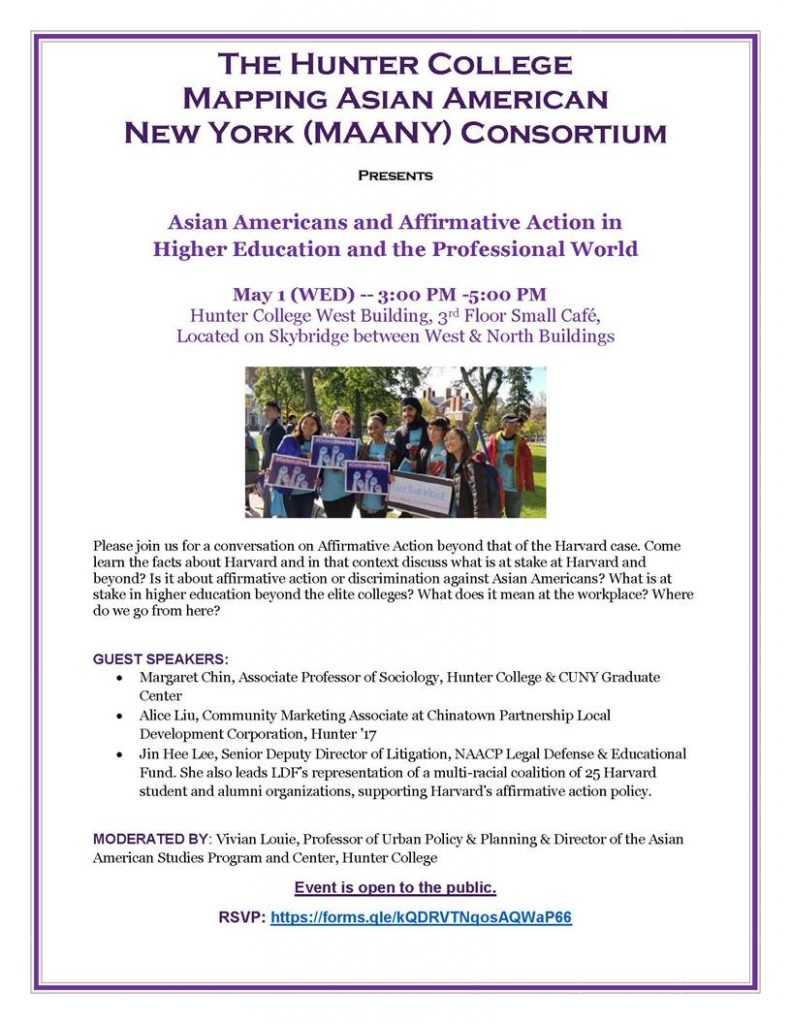For Immediate Release:
Date: August 3, 2022
Contact: Priya Purandare, Executive Director
WASHINGTON – The National Asian Pacific American Bar Association (NAPABA) filed an amicus brief in the cases challenging affirmative action before the Supreme Court, Students for Fair Admissions v. Harvard and Students for Fair Admissions v. University of North Carolina. We were joined on the brief by the National LGBTQ+ Bar Association.
In the brief, the bars reiterated their support for the principles laid out in Grutter v. Bollinger (2003), which allowed the consideration of race as a factor in college admissions as part of a holistic admissions process. The brief lays out the importance of diversity in the legal profession and the impact overturning holistic admissions in college on current efforts to diversify the legal pipeline. The brief did not address the second question posed by the Court about the practices and policies implemented by either Harvard or the University of North Carolina.
NAPABA has consistently supported the principle of holistic admissions since it first submitted an amicus brief in Grutter with a coalition of Asian Pacific American organizations. NAPABA was joined by other diverse bars reiterating their support for affirmative action and the impact on the legal profession in both Fisher v. Texas (2013) and Fisher v. Texas (2016). This principle was codified and most recently affirmed by the NAPABA Board of Governors as the organization’s standing policy in 2015.
NAPABA thanks Dan Bromberg, Appellate Practice leader, and Shelby Dyl of Pillsbury Winthrop Shaw Pittman LLP, for serving as pro bono counsel on this brief. We thank Albert Giang of King & Spalding LLP and Radha Pathak of Stris & Maher LLP, for their leadership as Co-Chairs of NAPABA’s Amicus Committee and contributions to the brief. A special thanks to Kevin Fong, former NAPABA Amicus Chair, for his advice and contributions.
###
The National Asian Pacific American Bar Association (NAPABA), represents the interests of over 60,000 Asian Pacific American (APA) legal professionals and nearly 90 national, state, and local APA bar associations. NAPABA is a leader in addressing civil rights issues confronting APA communities. Through its national network, NAPABA provides a strong voice for increased diversity of the federal and state judiciaries, advocates for equal opportunity in the workplace, works to eliminate hate crimes and anti-immigrant sentiment and promotes the professional development of people of all backgrounds in the legal profession.


